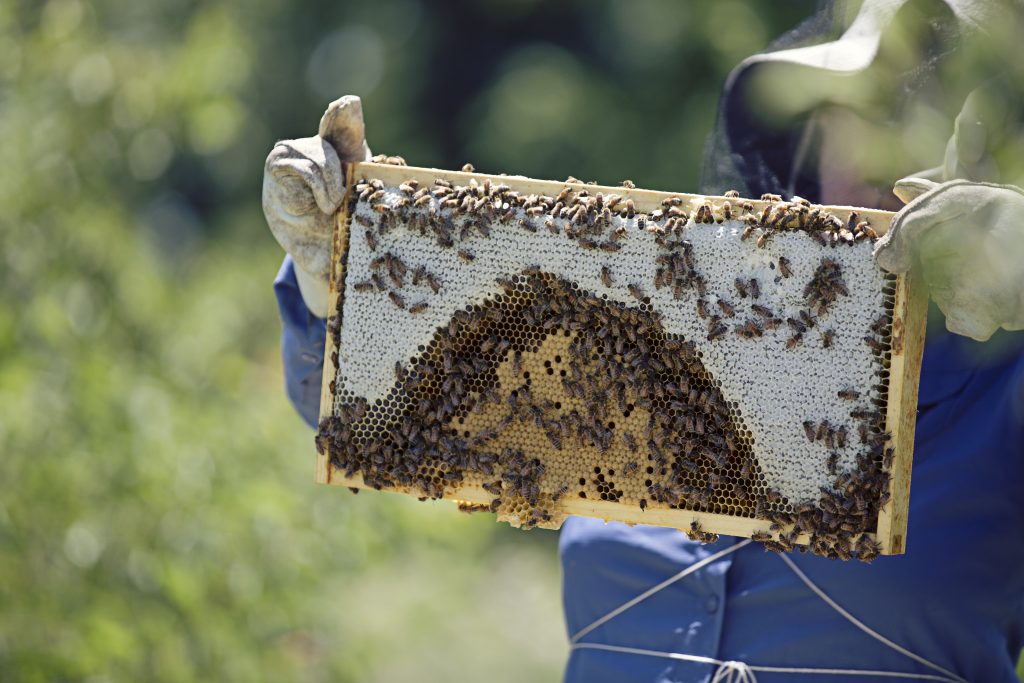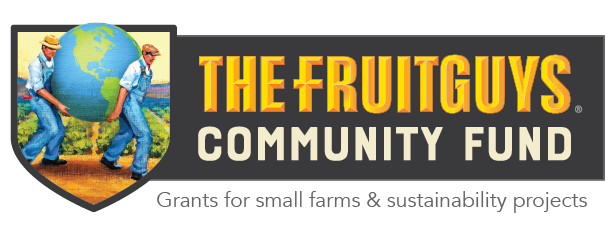
Healthy Hive Frame at Troy Community Farm, 2016 Grantee
The future of bees has taken up a lot of column inches over the last few years. As you’ll no doubt be aware by now, bees are an integral part of our ecosystem. Alarm bells initially started ringing when a shortage of bees was noticed. Bees are important because of the role they play in the pollination process. Around three-quarters of plants consumed by humans are pollinated by bees. When a 2012 study noticed that the bee population had dropped by 60%, the honey hit the fan.
In the wake of this news, many people around the world have made an effort to create better habitats for bees. At the Fruitguys Community Fund we support the planting of hedgerows and installation and maintenance of beehives. These projects build better environments for bees and other wildlife. However, there are some other ideas buzzing around about what might help save the bees.
Stop Droning On
Obviously, as it’s 2017, the first thought that pops into anyone’s mind when you hear of a bee shortage is “why not get a drone to do it?” But, as absurd as the idea sounds, some believe it may be a feasible solution.
One way to combat the bee shortage is to replace them, at least in part, with drones that will pollinate plants in their place. At the moment millions of bees are transported around the world at various times of the year to help with pollination. This obviously isn’t natural and it puts stress on an already dwindling bee population. Scientists think that supplementing the bees with small insect-sized drones would help the situation. These drones would perform the pollination tasks that bees cannot thus helping the thinly-spread population rest and recover. However, this isn’t really solving the problem of why the bees are disappearing…
Bee Gone
So, taking a step back, why are bees disappearing? The general consensus is that various pesticides have been hurting the bee population. The European Food Safety Agency tracked the problem back to neonicotinoids. These pesticides cause bees to go into a kind of fugue state and forget basic functions like eating or how to return home. These pesticides have now been banned in Europe yet the population is still in decline. Other theories suggest a link to climate change which causes flowers to bloom out of season and therefore confusing the bees.

Annali, crew leader and primary beekeeper, Troy Community Fard
Plan Bee
Another idea to help reduce the strain on the bee population comes from a high-tech giant. Together Intel and Australia’s Commonwealth Scientific and Industrial Research Organization are creating better ways to track honeybees. Much like humans have recently started wearing FitBits and other health tracking devices, scientists are now trying to develop a way of tracking a bee’s vital statistics. So far they have created a device smaller than a postage stamp that will help monitor the bee’s health. These tiny chips are placed on a bee’s back, kind of like a little rucksack.
All this extra data helps to give scientists a better understanding of why some hives are collapsing, and dig deeper into the trends behind the bee problem. In the meantime, at The FruitGuys Community Fund, we continue to promote creating a healthy climate for bees and other pollinators.




